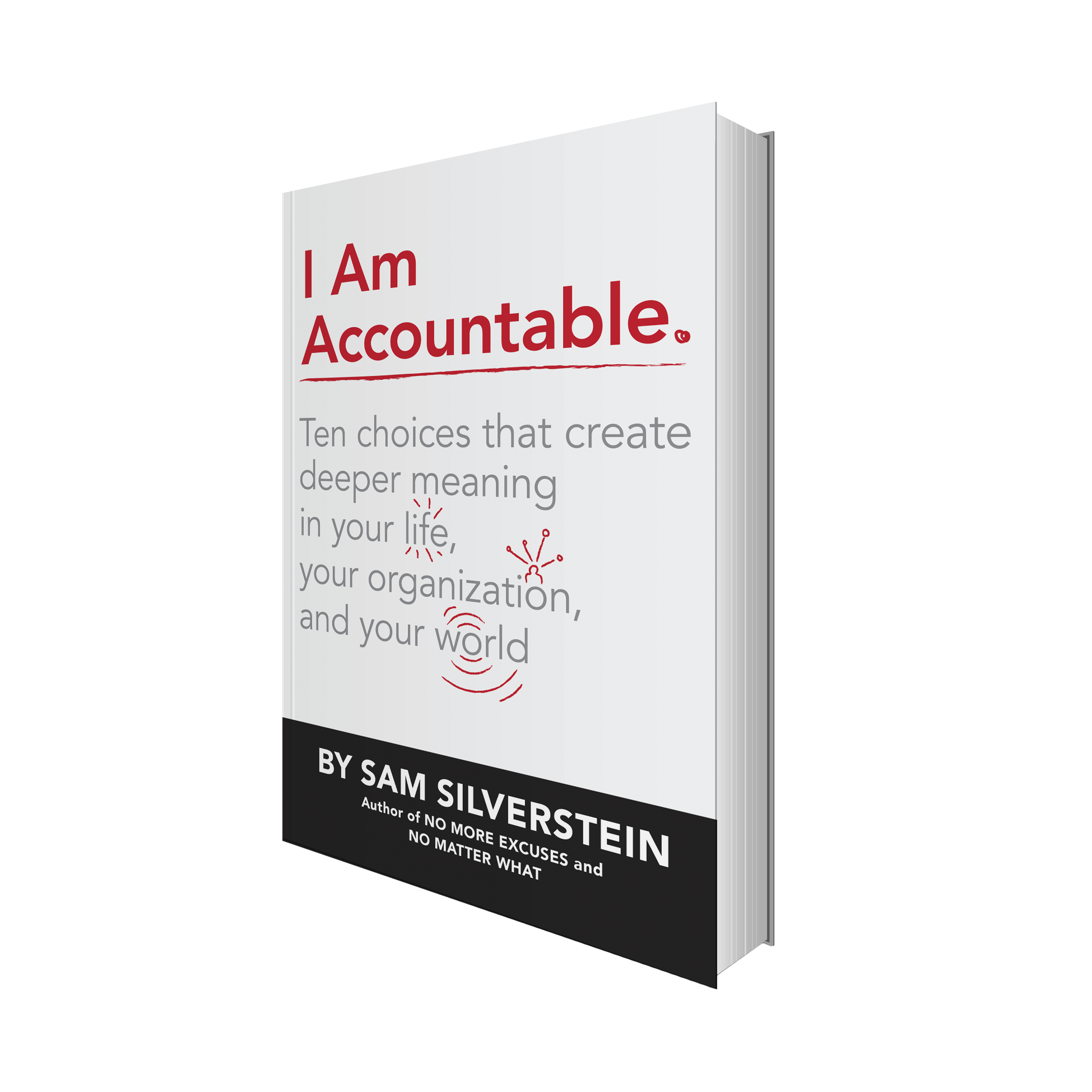Accountability: It’s Personal by Sam Silverstein
Photo by Words as Pictures from StockSnap
One powerful lesson that accountable leaders can take from the last few extraordinary months is that personal commitments matter.
That may seem like an obvious point. It is not. It requires constant reinforcement, especially within leadership circles. You would be surprised how many leaders I run into who imagine that their commitments do not need to be personal. They say things like “I am committed to quality” or “I am committed to making this company number one in its field.” Yet somehow they never grasp the importance of making personal commitments to actual human beings.
So let’s be clear. Without a personal commitment, there is no accountability. Teams and companies that struggle with sustaining good relationships also struggle with accountability. Without strong relationships, we cannot achieve anything of consequence, live up to our full potential, or make any kind of meaningful contribution as leaders or as human beings.
We are interconnected and interdependent, and our personal commitments matter. This principle holds true whether we are talking about a relationship that unfolds in our personal life or one that unfolds in our professional life. The kinds of commitments that support relationships are exactly the same in each realm.
Precisely the same rules apply whether you are the leader of a Fortune 1000 enterprise struggling to chart its path through an unprecedented economic downturn…or a member of a family struggling to stay sane and whole and safe in the midst of the global pandemic. The rules of the game are identical in both situations. They are extremely simple, and can be summarized as follows: accountable relationships require personal commitment in ten specific areas.
These ten RELATIONAL COMMITMENTS break down as follows:
I commit to discover and realize my own potential…so I can help others to reach theirs. We help other people get better and achieve more in their lives.
I commit to the truth. Lying and accountability cannot coexist.
I commit to live my values. Our core values state our principles and our standards of behavior. They are what we stand for. If we stand for nothing, we are wasting our lives. If we don’t know what our values are, we need to find out. Once we do know what our values are, we must honor them in our decision-making.
I commit to “It’s all of us.” When we commit to “It’s all of us,” we accept that we do not succeed unless the other person succeeds—and we accept that if the other person fails, we fail. This commitment starts with the people in our lives, and extends outward until it eventually encompasses the entire human family.
I commit to embrace faults and failures as well as opportunities and successes. We speak up about our own shortcomings, and we see discussing them as opportunities for growth. We do not judge others based on their worst moments. We are not perfect, and we do not expect others to be perfect.
I commit to sound financial principles. We come to this world empty-handed. We leave it empty-handed. In between, it is our job to maintain “our” resources responsibly—including, but not limited to, financial resources. We make giving a priority.
I commit to a safe space. We create and sustain an environment of physical, emotional, and psychological safety. What we allow in our space, we condone.
I commit to “My word is my bond.” What we say must align with what we do.
I commit to stand with you when all hell breaks loose. There will be tough times in life. We give people the support they need when they need it most, even if that is not convenient or easy.
I commit to a good reputation. Our actions matter—not just in terms of the outcomes they deliver today, but in terms of what people say about us, our family, our organization, and our team tomorrow.
There is no separate list of commitments for your professional life that is different from the list of commitments for your personal life.
These relational commitments are exactly the same.
If we expect to thrive in our families, in our organizations, or anywhere else, we must make each of these commitments on a personal level.
The people and organizations that will thrive during this time of challenge, the people and organizations that will come out of any crisis quickly and with the best prospects for success in the future, will be those that take on, and support, all ten of these relational commitments by means of actions—not words.
Accountability is based on accepting our interdependence, on understanding and fulfilling our personal, relational commitments to one another. If you want your family, your company, your society to be accountable, if you want to come out of hard times stronger than you went into it, I have good news for you: you really can make that happen by making, and following through on, these ten personal commitments.
Sam Silverstein is dedicated to empowering people to live accountable lives, transform the way they do business, and create a more accountable world. He helps companies create an organizational culture that prioritizes and inspires accountability. His latest book, I Am Accountable: Ten Choices That Create Deeper Meaning in Your Life, Your Organization, and Your World, is now available to buy from Amazon, Barnes & Noble, Books-a-Million, and Porchlight Books. You can follow Sam on Twitter, Facebook, Instagram, and YouTube. This article originally appeared here on The Accountability Blog.



